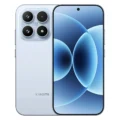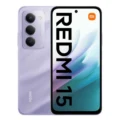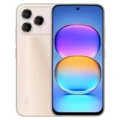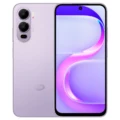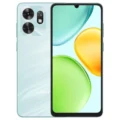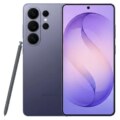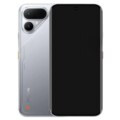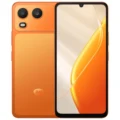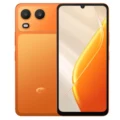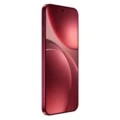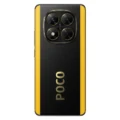Xiaomi Poco F7
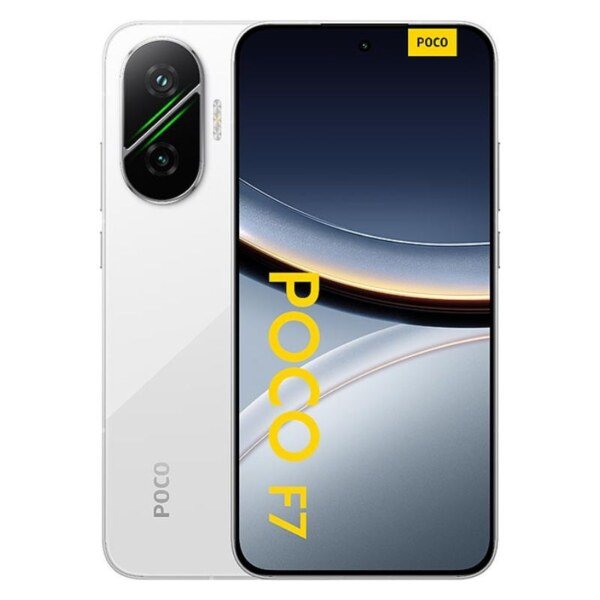


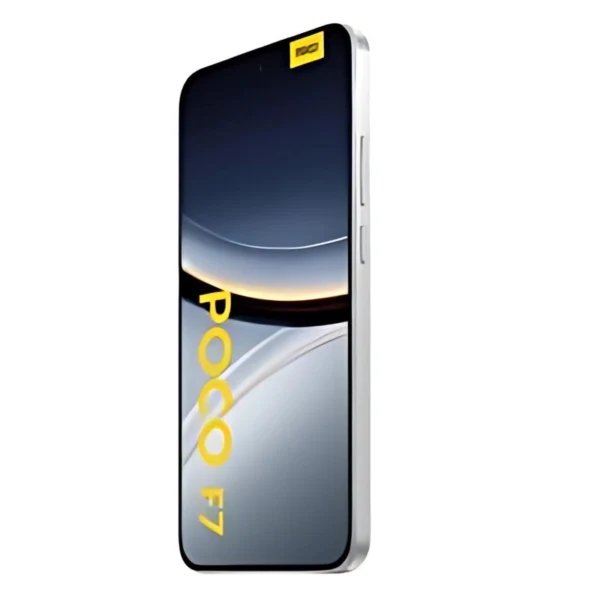

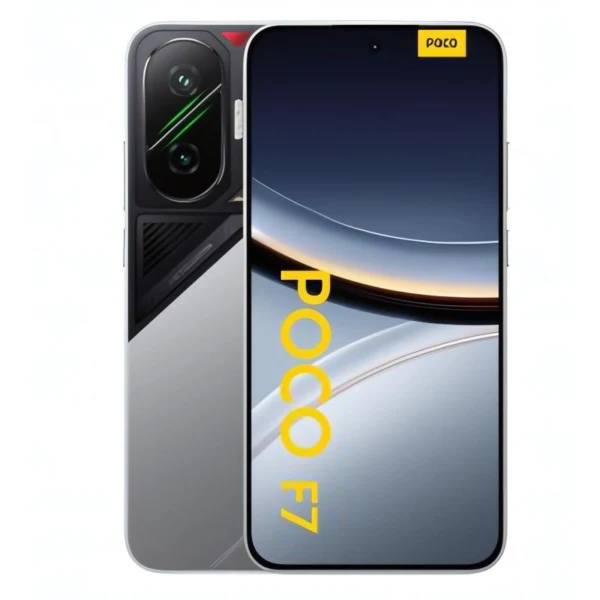
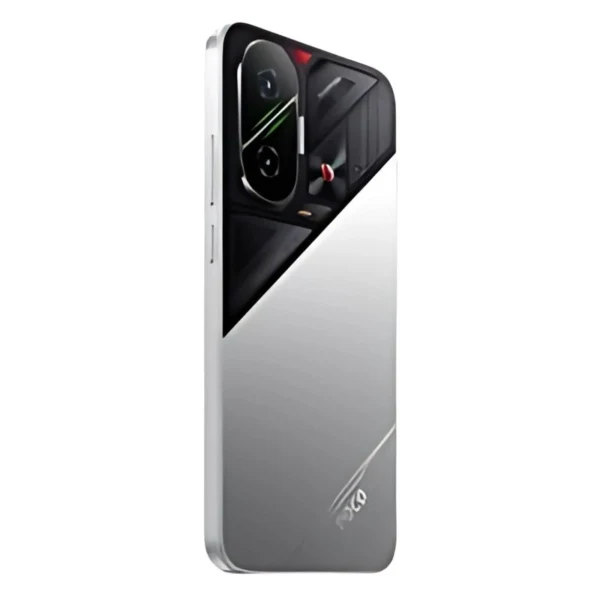
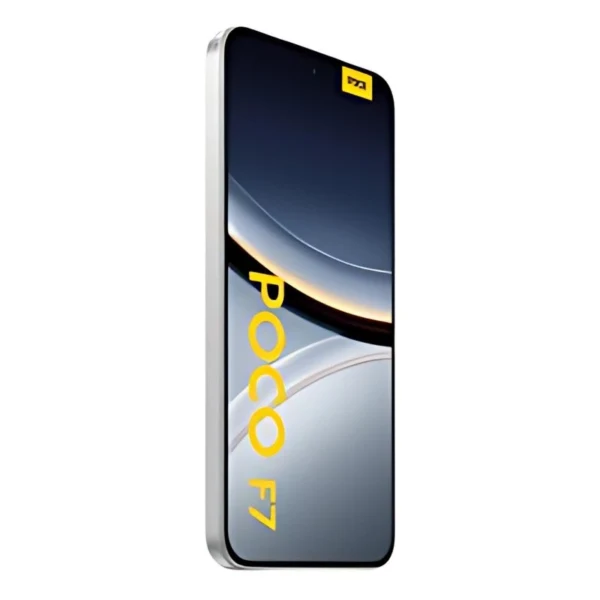
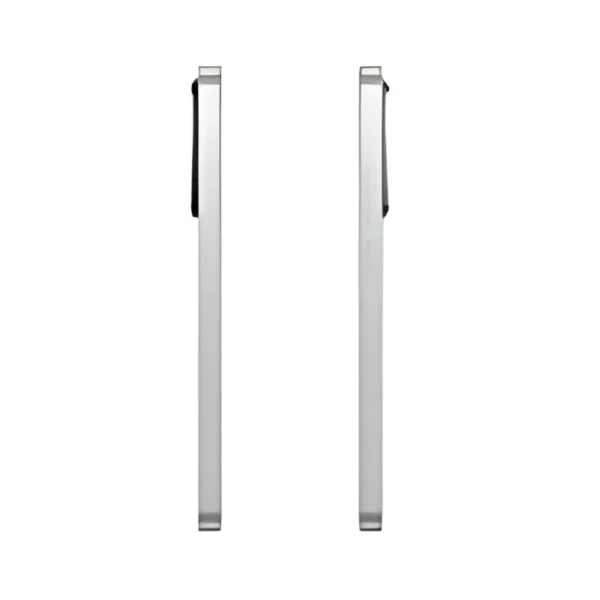
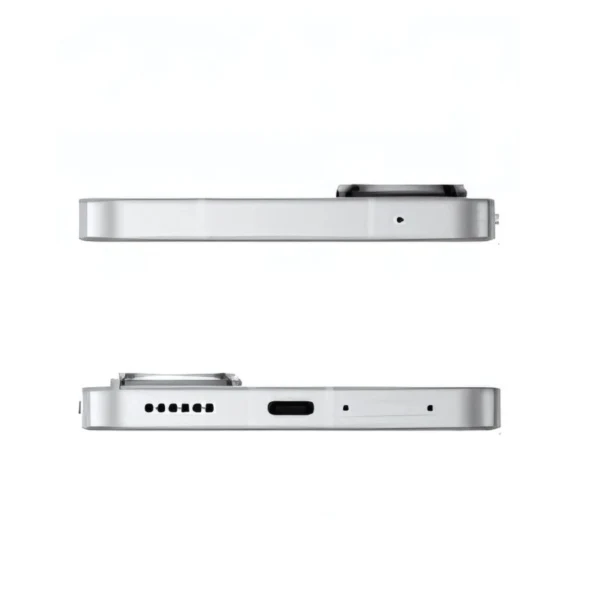
Xiaomi Poco F7 price in bd
Xiaomi Poco F7 is now available in Two variants (12GB+256GB, 12GB+512GB). Now, Xiaomi Poco F7’s Unofficial Price 62,000 Taka in Bangladesh.
Full Specifications
Price in BD
| Unofficial | 12GB+256GB - 62,000 Tk |
| Unofficial | 12GB+512GB - 66,000 Tk |
General Info
| Announced | Not announced yet |
| Status | Rumored |
| Brand | Xiaomi |
| Model | Poco F7 |
Network
| Technology | GSM / HSPA / LTE / 5G |
| 2G bands | GSM 850 / 900 / 1800 / 1900 |
| 3G bands | HSDPA 800 / 850 / 900 / 1700(AWS) / 2100 |
| 4G bands | LTE |
| 5G bands | SA/NSA/Sub6 |
| Speed | HSPA, LTE, 5G |
Body
| Dimensions | 163.1 x 77.9 x 8.2 mm (6.42 x 3.07 x 0.32 in) |
| Weight | 215.7 g (7.62 oz) |
| SIM SIM (Subscriber Identity Module) is a small card that contains mobile network subscriber's account information. This allows the phone using the card to attach to a mobile network. The SIM card is most commonly associated with GSM and UMTS mobile networks. Moving a SIM card from one phone to another allows a subscriber to switch mobile phones without having to contact their mobile network carrier. SIM cards can also be used by a phone to store limited amounts of data, such as phone numbers and text messages. | Nano-SIM + Nano-SIM |
| Build | Glass front, aluminum frame, glass back |
| Colors | Black, White, Silver |
| IP Rating | IP68 dust tight and water resistant (immersible up to 2m for 30 min) |
Display
| Display Type Display Technology => A number of display technologies and types used in mobile phones => TFT (Thin Film Transistor), IPS (In-Place Switching), OLED (Organic Light Emitting Diode), AMOLED (Active-Matrix Organic Light-Emitting Diode), Super AMOLED (an even advanced version of AMOLED), Resistive Touchscreen (Resistive touchscreens contain two layer of conductive material with a very small gap between them which acts as a resistance), Capacitive Touchsceen (Capacitive touchscreen technology consists of a layer of glass coated with a transparent conductor) | AMOLED |
| Size | 6.83 inches, 114.5 cm2 |
| Screen to Body | ~90.2% |
| Features | 68B colors, 3840Hz PWM, Dolby Vision, HDR10+, HDR Vivid |
| Brightness | 800 nits (typ), 1800 nits (HBM), 3200 nits (peak) |
| Refresh Rate | 120Hz |
| Resolution | 1280 x 2772 pixels |
| Aspect Ratio | 19.5:9 |
| Pixel Density Pixel Density (PPI) is refers to the concentration of pixels on a particular display, measured in pixels per inch (ppi). Pixel density is calculated by dividing the diagonal pixel resolution of a display by its diagonal size, higher pixel density better display quality. | ~447 ppi |
| Touch Screen | Capacitive Touchscreen, Multi-touch |
Performance
| Chipset Chipset is a group of integrated circuits designed to perform one or a more dedicated functions, often with real time computing constraints, Popular smartphones are equipped with more advanced embedded chipsets that can do many different tasks depending on their programming. | Qualcomm SM8735 Snapdragon 8s Gen 4 (4 nm) |
| CPU CPU (Central Processing Unit) mostly known as processors, CPU processes instructions in order to carry out certain functions that make your device operate properly. Processors are often described as the brain of computers, smartphones and tablets, Smartphones and tablets rely on processors to carry out their every task, Processors are an incredibly important factor in selecting any type of computing device, including your smartphone. | Octa-core (1x3.21 GHz Cortex-X4 & 3x3.0 GHz Cortex-A720 & 2x2.8 GHz Cortex-A720 & 2x2.0 GHz Cortex-A720) |
| GPU GPU (Graphics Processing Unit) is a single-chip processor designed to rapidly manipulate and alter memory to accelerate the creation of images in a frame buffer intended for output to a display, This includes things such as lighting effects, object transformations, and 3D motion. | Adreno 825 |
| OS | Android 15 |
| UI | HyperOS 2 |
Memory
| RAM RAM (Random Access Memory) is a type of computer memory that can be accessed randomly, any byte of memory can be accessed without touching the preceding bytes that allows information to be stored and accessed quickly from random locations. RAM is the most common type of memory found in computer systems, smartphones, tablets and other electronic devices. | 12 GB |
| ROM | 256 GB, 512 GB |
| Card Slot Memory Card Slot is a special slot for inserting a memory card. Memory cards allow you to expand the phone's built-in memory, A memory card (sometimes called a flash memory card or a storage card) is a small storage medium used to store data such as text, pictures, audio, and video, for use on small, portable or remote computing devices such as mobile phones, mp3 players, digital cameras. | No |
| UFS | 4.1 |
Main Camera
| Dual |
50 MP, f/1.5, 26mm (wide), 1/1.95", 0.8µm, PDAF, OIS 8 MP, f/2.2, 15mm (ultrawide), 1/4.0", 1.12µm |
| Features | HDR, panorama |
| Flash Flash Light => There is commonly two types of flash lights are used in camera mobile phones, LED Flash (LED flash offers lower power consumption with drive circuitry that takes up very little room, LEDs can be strobed faster than any other light source), Xenon Flash (xenon flash produces an extremely intense full-spectrum white light for a very short duration) | LED flash |
| Video Recording | 4K@30/60fps, 1080p@30/60/120/240/960fps, gyro-EIS |
| Autofocus | |
| Settings | Exposure compensation, ISO control |
| Zoom | Digital Zoom |
Selfie Camera
| Single | 20 MP, f/2.2, (wide), 1/4" |
| Video Recording | 1080p@30/60fps |
Sound
| Loudspeaker | |
| 3.5mm jack | |
| Others | 24-bit/192kHz Hi-Res & Hi-Res Wireless audio |
Connectivity
| WLAN Wi-Fi is a popular wireless networking technology using radio waves to provide high-speed network connections that allows devices to communicate without cords or cables, Wi-Fi is increasingly becoming the preferred mode of internet connectivity all over the world. | Wi-Fi 802.11 a/b/g/n/ac/6/7, dual-band, Wi-Fi Direct |
| Bluetooth Bluetooth is a wireless communications technology for exchanging data between mobile phones, headsets, computers and other network devices over short distances without wires, Bluetooth technology was primarily designed to support simple wireless networking of personal consumer devices. | 5.4, A2DP, LE, aptX, LHDC 5 |
| Positioning | GPS (L1+L5), BDS (B1I+B1c+B2a), GALILEO (E1+E5a), QZSS (L1+L5), NavIC (L5), GLONASS |
| NFC NFC (Near field communication) is a set of standards for smartphones and similar devices to establish peer-to-peer radio communications with each other by touching them together or bringing them into proximity, usually no more than a few inches. | |
| Infrared Infrared connectivity is an old wireless technology used to connect two electronic devices. It uses a beam of infrared light to transmit information and so requires direct line of sight and operates only at close range. | |
| Radio | |
| USB | Type-C 2.0, OTG |
Sensors
| Sensors Sensors are electronic components that detects and responds to some type of input from the physical environment. The specific input could be light, heat, motion, moisture, pressure and location, The output is generally a signal that is converted to use in computing systems, a location sensor, such as a GPS receiver is able to detect current location of your electronic device. | accelerometer, gyro, proximity, compass |
| Fingerprint | Under display, optical |
| Face Unlock | Yes |
Battery
| Battery Type Battery Type => Cell phones run on various kinds of batteries depending on the manufacturer, phone size or shape and features. There are basically four types of cell phone batteries => Lithium Polymer, Lithium Ion, Nickel Metal Hydride and Nickel Cadmium. | Li-Pol (Lithium Polymer) |
| Capacity Battery Capacity is a measure (typically in Amp-hr) of the charge stored by the battery, and is determined by the mass of active material contained in the battery. The battery capacity represents the maximum amount of energy that can be extracted from the battery under certain conditions. | 6500 mAh |
| Charging |
90W wired, PD3.0, QC3+ 22.5W reverse wired |
Tests
PROS
- AMOLED, 68B colors, 120Hz, 3840Hz PWM, Dolby Vision, HDR10+, HDR Vivid
- Qualcomm SM8735 Snapdragon 8s Gen 4 (4 nm)
- 4K@30/60fps
- 24-bit/192kHz Hi-Res & Hi-Res Wireless audio
- NFC
- Infrared port
- Fast Charging 90W
CONS
- Card slot Not Support
- No 3.5mm jack
- No FM Radio
Xiaomi Poco F7 Highlights
Looking for a powerful phone that can keep up with everything you do? The Xiaomi Poco F7 might be your next upgrade. Though it’s not officially announced yet, this rumored flagship from Xiaomi’s Poco lineup is already creating a buzz with its top-tier specs. With support for 5G, a Snapdragon 8s Gen 4 chip, and 12GB of RAM, it’s built to handle intense multitasking, high-end gaming, and future-proof connectivity. Whether you’re scrolling through social media, watching high-resolution videos, or jumping between apps, this phone won’t slow you down.
The display on the Poco F7 is one of its standout features. It’s rocking a large 6.83-inch AMOLED screen with a super high peak brightness of 3200 nits perfect for viewing in bright sunlight. Thanks to Dolby Vision, HDR10+, and a buttery-smooth 120Hz refresh rate, everything from movies to mobile games will look vivid and fluid. And with a pixel-dense resolution of 1280 x 2772, you’re getting crisp detail whether you’re editing photos, streaming content, or browsing the web.
Photography lovers will appreciate the camera setup here. The dual rear cameras include a powerful 50MP main lens with Optical Image Stabilization (OIS) for sharp, steady shots and an 8MP ultrawide for capturing more in every frame. You can shoot 4K videos at 60fps or even slow-motion footage at up to 960fps great for content creators or anyone who just loves documenting life in style. The 20MP front camera ensures your selfies look just as good, and video calls are clear and crisp.
Battery life is another strong point on the Poco F7. With a huge 6500mAh battery, you’ll easily get through a full day of heavy use and probably more. It supports 90W fast wired charging, meaning you can get a major boost in just minutes. Plus, it even includes 22.5W reverse charging, so you can top up your earbuds or help out a friend. This is a phone designed for people who are always on the go.
Design-wise, the Poco F7 doesn’t just perform well it looks and feels premium too. Built with a glass front and back held together by an aluminum frame, it comes in sleek Black, White, and Silver. The IP68 rating means it’s dust-tight and water-resistant up to 2 meters for 30 minutes, giving you peace of mind if you’re caught in the rain or drop it in water accidentally.
Connectivity is ultra-modern here. You’ll get the latest Wi-Fi 7 support for fast internet speeds, Bluetooth 5.4 for stable wireless connections, and a wide array of satellite systems for precise GPS tracking. The USB Type-C port supports OTG and fast data transfer, and there’s Hi-Res audio support for both wired and wireless playback. While there’s no headphone jack or infrared sensor, the phone is loaded with everything else modern users want.
1. Is the Xiaomi Poco F7 waterproof?
Yes, it has an IP68 rating, which means it’s dustproof and can be submerged in up to 2 meters of water for up to 30 minutes.
2. What processor does the Poco F7 use?
It’s rumored to come with the Snapdragon 8s Gen 4 chipset, offering excellent performance for gaming, multitasking, and power efficiency.
3. Does the Poco F7 support 5G?
Yes, it supports multiple 5G bands including SA/NSA/Sub6 for fast, reliable mobile internet worldwide.
4. What is the battery life of the Poco F7?
With a 6500mAh battery and power-efficient hardware, users can expect over a full day of use on a single charge, even with heavy usage.
5. Does the Poco F7 have a good camera?
Absolutely. It has a 50MP main camera with OIS for steady shots, plus 4K video recording and an 8MP ultrawide lens for versatile photography.
6. What version of Android does the Poco F7 run?
It’s expected to ship with Android 15 and Xiaomi’s custom HyperOS 2, offering the latest features and updates out of the box.
Why should you buy this Xiaomi Poco F7 phone?
The Poco F7 is shaping up to be one of the best performance-to-price flagship phones of the year. With high-end specs like the Snapdragon 8s Gen 4, ultra-bright AMOLED display, massive battery, and fast charging, it’s built for users who demand speed, style, and reliability. Whether you’re a gamer, creator, traveler, or just someone who loves great tech, this phone checks nearly every box.
| Model | : | Poco F7 |
| Released | : | Not announced yet |
| RAM | : | 12 GB |
| ROM | : | 256 GB |
| Price | : | 62,000 Tk |
Our Verdict on the Xiaomi Poco F7
Although it hasn’t been officially released yet, the Poco F7 already looks like a serious contender in the premium mid-range category. It brings flagship-level features like a 120Hz AMOLED display, 50MP OIS camera, and 90W fast charging to a package that’s likely to be competitively priced. If Xiaomi keeps the price reasonable, this could be one of the best Android phones to buy in 2025.
Follow X – See Xiaomi Redmi Note 14 5G
Reviews
Disclaimer Note
We always try our best to keep our website content and information updated and correct, the material and information contained on our website is for general information purposes only, You should not rely upon the material and information as a basis for making any business, legal or any other decisions.
